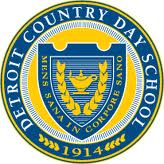"The Element is the point at which natural talent meets personal passion." - Ken Robinson
Thanks to the generosity of my wonderful aunt and uncle, my wife and I were treated to a trip to Hawaii over the February break. We had many great experiences, including a traditional Hawaiian luau. At the urging of a couple of my cousins the hula dancers dragged me on stage to participate in their hula. I was not a willing participant, and suffice to say that hula dancing is not where my "natural talent meets my personal passion", but despite my reluctance, it was a lot of fun. Despite not always seeking them out, inevitably I find that experiences outside of my comfort zone are the most rewarding and memorable. Such is the blueprint for preparing today's young people to be tomorrow's leaders.
This past weekend at the well known Celebration of Teaching and learning conference, I had the opportunity to hear Dr. Ken Robinson, author of the book
The Element, speak on the premise of passion meeting talent. Impressed with him, and interested in the concept, I purchased the book, and have been fascinated by how, like most great ideas, it is brilliant in its simplicity. Most of all, it is completely appropriate to our mission as educators.
One of the things that struck me most both in his talk and in the book was the concept that we learn through our experiences in school and in life to inhibit some of our
natural interests. For example, Robinson makes the point that if one were to ask a group of 1st graders how many were creative and loved to make art, they would all put their hands up. Ask the same question to college students, he suggests, and only a few will respond in
the affirmative. Historically, schools and our culture have conspired to discount creativity and emphasize knowledge as an outcome. Unfortunately, that formula is no longer one that will produce the kind of adult who will be successful in today's world.
The nature of today's world is that it is ever-changing. Such an environment not only rewards creativity, it demands it. Our high school graduates need to be problem solvers who not only can imagine solutions, but imagine the problems! Knowledge continues to be critical, but the art of success in our flattened world is in creative application of knowledge.
I am blessed with four wonderful children. Having the background and the interest, I have often coached their youth athletic teams. One of
the things I am struck by is how willing young children are to try new things. As we get older, the fear of looking foolish, or the embarrassment of being laughed at, will temper our willingness to expand our horizons. It is incumbent on schools to create an educational atmosphere that "stretches" the boundaries of student investigations and problem solving.
At North, our teachers are working to provide such an environment. We have designed new classes, and new instructional methodologies designed to teach students creative, fluid problem solving. Students should expect more than being lectured to in class on a daily basis, and
regurgitating their notes on an assessment. Project based learning and problem solving as a means to an end educationally are the approaches that will prepare our students for tomorrow's world.
Robinson says, "We need to
create environments - in our schools, in our workplaces, and in our public offices - where every person is inspired to grow creatively." I couldn't agree more. North's theme for this year has been "Be the change" - inspiring and rewarding creativity, and cultivating that talent is a necessary change for today's schools.


